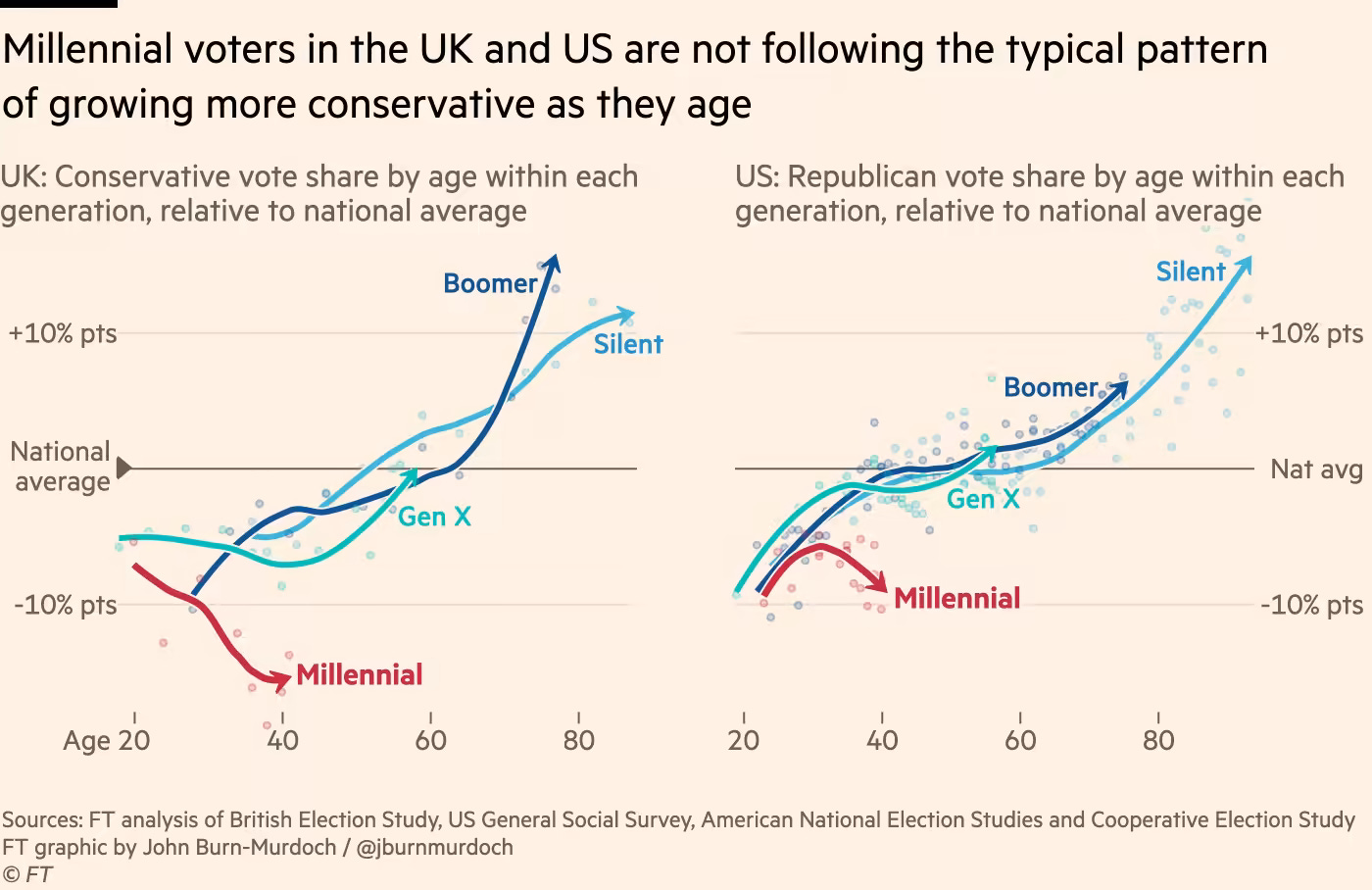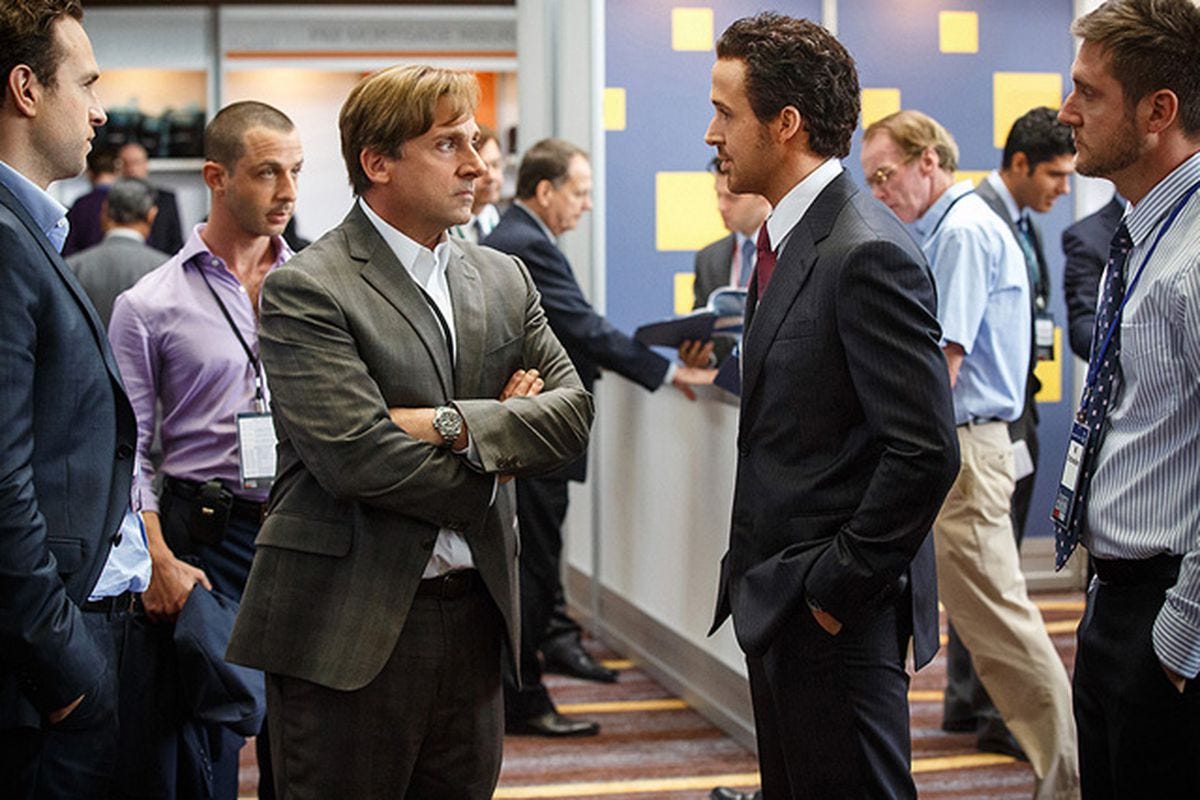Reject accepted wisdom
Why taking a fresh look at audience behaviour and avoiding shortcuts can re-energise your campaign responses.
When planning campaigns, we often use accepted wisdom that will generate knowing nods around a meeting room. But more often than not, there's mileage in skewering what society accepts to be true. A healthy dose of iconoclasm towards accepted wisdom goes a long way in planning.
One such accepted wisdom that we've seen skewered by compelling evidence is that people get more Conservative (with the deliberate big C) as they get older.
Recent research tells us that people's views on hot political topics, such as taxation, abortion and the death penalty, are indelibly shaped by the socio-economic experiences of their late teens and early 20s. And that shaping remains in place as people age.
It's not that people change; it's that society changes around them. New generations reach political maturity, with their views shaped by their adolescence, making older cohorts' views seem old-fashioned and more conservative.
The other factor that research published on the site Prejudice Free found was that the more stable people's socio-economic conditions were during their coming of age, the more open-minded and tolerant their views tended to be.
This certainly chimes with my own experience - born in 1980, I vaguely remember the recession of the early 90s, but being about 12 and still at school, it had little direct effect on my economic circumstances (even if it affected my mum significantly). I then reached voting age under Tony Blair and enjoyed many years of economic stability. Contrast this with older generations, like my mum's, whose teenage years happened during the 1970s, featuring startlingly similar circumstances to those we're seeing now - strikes galore, rampant inflation, plus the lingering shadow of Vietnam and the Cold War.
Of course, the past 30-odd years have not been all plain sailing stability; the global financial crisis of 2007-08 still looms large over today's socio-economic milieu. But according to new research published by the FT during the Christmas break, teenagers who came of age during that period buck the trend of more instability = more conservatism.
John Burn-Murdoch highlights that the current crop of 35-year-olds is the least right-leaning in "recorded history". Burn-Murdoch reckons "millenials" (urgh - but I'll allow it as I'm quoting someone else) tend to remain more liberal precisely because they came of political age following the financial crisis of 07-08.
I'd wager that this is because, as per its depiction in The Big Short, the financial crisis of 07-08 wasn't down to events beyond our control but the result of avarice, greed and short-sightedness across the financial sector. Young people looked at both the system and the startling lack of repercussions of said crisis and saw a broken system that needs fixing.
This is backed up by survey data in the US (of course, home of Occupy Wall Street), showing "millennials are tacking much further to the left on economics than previous generations did, favouring greater redistribution from rich to poor." The FT saw similar effects in the UK.
This is, of course, just one reading of the two sets of data referenced in the pieces I've read; I'm sure there's a) plenty more data out there and b) plenty more interpretations you can pull from the findings. I'd love to see how the attitudes of teenagers coming of age during the pandemic have been affected, for example.
But no matter how you analyse the findings of Prejudice Free and the FT, the point remains - when planning comms campaigns, we love to use shortcuts and accepted wisdom for their innate simplicity. It’s not a terrible thing to do. We're often up against it during these processes - short on time, short on headspace, short on resource - so we reach for the tried and tested pathways to get us where we need to be quickly and easily.
But sometimes, you need to get off the beaten track. Sometimes you need to shake it up and re-energise your team and your audience with a fresh approach.
And a great way to do that is by questioning everything. Question the brief. Question our own assumptions and our inherent bias. And absolutely, question the accepted wisdom that comes with the problem you're tackling.
Flipping an assumption or a cliche on its head is an excellent tool for generating a new perspective on a brief. Or take a leaf out of Mark Pollard's book and use a well-placed "but" to provide a new angle on a piece of accepted wisdom.
One thing we're never short of in our world of PR/communications/marketing is accepted wisdom. Reject that accepted wisdom and see where it takes you. It may make the journey longer, but you can be sure your final destination will be way more interesting.





